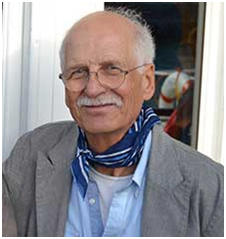Awarded annually for the two best doctoral theses in any of the programs of the PhD School of Life Sciences at the Faculties of Medicine and Science.
The Annual Thesis Prize is awarded for the two best doctoral theses, one per faculty, defended for a PhD in Life Sciences in any of the specializations recognized by the PhD School of Life Sciences at the Faculties of Medicine and Science.
The prize of 1’000 CHF (500 CHF per thesis) is awarded at the Annual Forum.
All students who have obtained their PhD in the two semesters preceding the Forum are considered for the prize. Theses are evaluated by a committee composed of the program directors and co-directors and the vice-deans of the School.
Regulations of the prize : download PDF
Winners

Roxane DUMOND
“BRIDGE OVER TROUBLED WATER: ADOLESCENCE IN TIMES OF PANDEMIC”
Director: Pr Idris Guessous (director) & Pre Silvia Stringhini (co-director)

Alexandros TSOUPAS
“INFERRING POPULATION DYNAMICS DURING PAST EXPANSION EVENTS USING SPATIOTEMPORAL MOLECULAR PATTERNS"
Director: Dr Mathias Currat
Previous recipients of the Annual Thesis Prize
| Year | Winner | Affiliation | Thesis title | Thesis director |
| 2024 | Olimpia BOMPADRE | Faculty of Medicine - Biomedical Sciences (BIOMED) PhD program | Exploring normal and pathological chromatin structures and gene regulations at the Pitx1 locus | Guillaume ANDREY |
| 2024 | Julian WENINGER | Faculty of Science - Physics of Biology (PHYVI) PhD program | Mechanical Insights into the Development of Positional and Orientational Order in Multi-Cell-Type Tissues | Karsten KRUSE |
| 2023 | Mireia Andreu Carbo | Faculté des sciences / Section de chimie et biochimie / Département de biochimie | Crosstalk between walking kinesin-1 and microtubule network organization | Charlotte Aumeier |
| 2023 | Chloe Mayere | Faculté de médecine / Section de médecine fondamentale / Département de médecine génétique et développement | Characterizing mouse sex determination at the single cell level | Serge Nef |
| 2022 | Sophie SLUYSMANS | Molecular Biosciences | The Role of WW-PLEKHAs and PDZD11 in the Trafficking of the Copper Pump ATP7A and in Copper Homeostasis | Sandra Citi |
| 2022 | Aurélia BALESTRA | Biomedical Sciences | Regulation of Plasmodium gametogenesis | Mathieu Brochet |
| 2021 | Emmanuelle STEIB | Molecular Biosciences | Characterization of POC16/WDR90 Proteins in Centriole Integrity | Paul Guichard & Virginie Hamel |
| 2021 | Stefano LEO | Genomics and Digital Health | Dynamics of changes of human gut microbiota in response to multidrug resistant bacteria colonization and following antibiotic treatment | Jacques Schrenzel |



